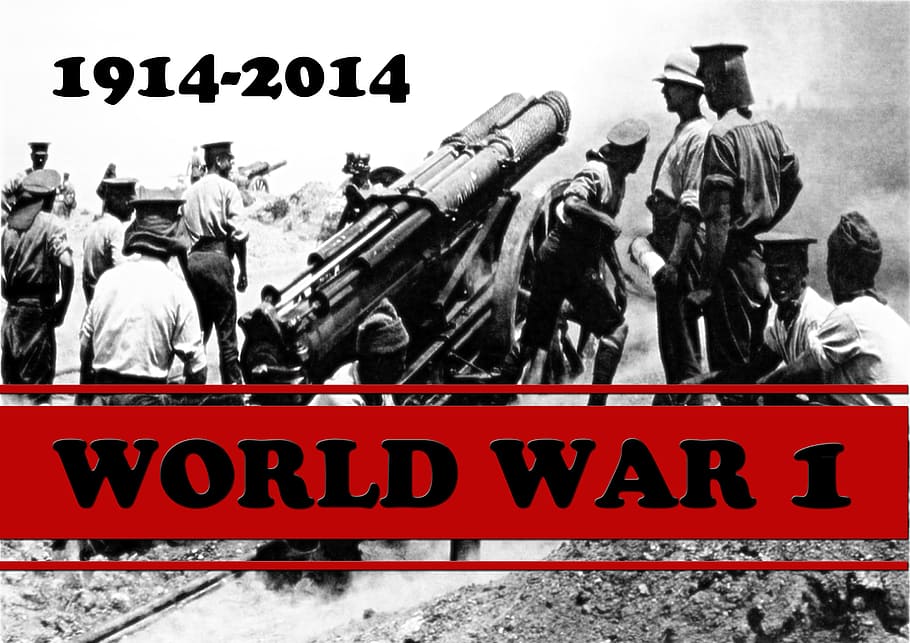
The Outbreak of World War I: Causes and Opponents
Introduction
World War I, often referred to as the Great War, was a global conflict that lasted from 1914 to 1918 and had far-reaching political, social, and economic consequences. It is commonly believed to have been triggered by the assassination of Archduke Franz Ferdinand of Austria-Hungary, but the war’s roots run much deeper, involving complex alliances, imperial ambitions, and a volatile geopolitical landscape.
Causes of World War I:
- Nationalism: Nationalistic fervor was on the rise in Europe, with many ethnic groups seeking self-determination and independence from empires. This led to tensions in regions like the Balkans, where various ethnic groups were vying for control.
- Imperialism: The major powers were engaged in a race for colonial possessions around the world. This competition created friction and rivalry as nations sought to expand their empires and influence.
- Militarism: Europe was characterized by a buildup of military forces and an arms race. Nations believed that a strong military was essential to their security and status, but this also heightened the potential for conflict.
- Alliance System: Europe was divided into two major alliance blocs: the Triple Entente (France, Russia, and the United Kingdom) and the Triple Alliance (Germany, Austria-Hungary, and Italy). These alliances were meant to deter aggression, but they also meant that a conflict between two nations could quickly escalate into a much larger war.
The Spark:
The immediate trigger for World War I was the assassination of Archduke Franz Ferdinand of Austria-Hungary on June 28, 1914, in Sarajevo, Bosnia. He was heir to the Austro-Hungarian throne. The assassination was carried out by a Serbian nationalist group, the Black Hand. Austria-Hungary saw Serbia’s involvement and influence in the region as a threat and issued a series of demands to Serbia. When Serbia’s response was seen as inadequate, Austria-Hungary declared war on Serbia on July 28, 1914.
Opponents in World War I:
The war pitted the major powers of Europe against each other, ultimately dividing into two main alliances:
1. Allied Powers (Entente Powers):
- France: France had longstanding tensions with Germany and sought to regain territories lost in previous conflicts.
- Russia: Russia had ties to Serbia and supported Slavic interests in the Balkans.
- United Kingdom: The UK was concerned about maintaining a balance of power in Europe and protecting its colonial interests.
- Italy (initially part of the Triple Alliance): Italy switched sides and joined the Allies in 1915, motivated by territorial promises.
- United States (joined in 1917): The U.S. initially pursued a policy of neutrality but was drawn into the conflict due to unrestricted submarine warfare and other factors.

2. Central Powers:
- Germany: Germany’s military and industrial strength made it a dominant player in Central Europe.
- Austria-Hungary: Austria-Hungary sought to assert its influence in the Balkans and quell nationalist movements.
- Ottoman Empire: The Ottoman Empire aligned with the Central Powers, seeking to defend its territories and repel Russian advances.
- Bulgaria: Bulgaria joined the Central Powers to gain territorial rewards.
World War I quickly escalated into a global conflict, drawing in nations from various continents. The conflict’s scale and brutality forever changed the course of history and set the stage for the political and social upheavals of the 20th century.
In conclusion, the origins of World War I were deeply rooted in a complex web of factors, including nationalism, imperialism, militarism, and the alliance system. The assassination of Archduke Franz Ferdinand acted as a catalyst, leading to the escalation of tensions and the eventual conflict between the major powers of Europe. The war’s opponents were divided into two main alliances: the Allies (Entente Powers) and the Central Powers, which included Germany, Austria-Hungary, and the Ottoman Empire. The consequences of World War I reverberated across the globe, shaping the course of history for decades to come.


